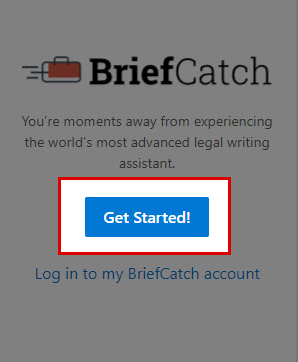Making Peace With “Which” vs. “That”: A Cheat Sheet
Which “which” vs. “that” rules make you wish that grammar evaporated? Do “which” hunts sometimes feel like witch hunts?
Help is on the way! This post will share my best “which vs. that” trick, along with examples from opinions, a brief, and a contract.
Let’s start with this example. Why did the Federal Trade Commission write “Clauses, Which Hurt Workers” and not “Clauses That Hurt Workers”?
Think of the noun (“clauses” in this case) as a pie. Is the writer talking about the whole pie or just slices of that pie? If it’s the whole pie, the phrase is nonrestrictive and you need “, which.” If it’s just slices of that pie, the phrase is restrictive and you need “that.” A piece of cake, right?

Easy As Pie
By writing “Clauses, Which Hurt Workers,” the FTC conveys that the entire noncompete-clause pie tastes bad.
But had this part of the headline read “Clauses That Hurt,” the FTC would have conveyed that it wanted to slice the noncompete pie into pieces. Keep the good noncompete slices if you want, but throw out the bad ones that hurt workers and harm competition.
Now before we get to examples, let’s dispose of a few other issues. Who came up with this whole mess anyway? Henry Fowler, but even he said that the “rule” was not really a rule.
And do good writers follow the distinction? Sort of. They do so in American English more than in British English. And in published material more than in informal writing. And, yes, in the legal profession more than in most others (though many grammar-loving lawyers and judges falsely accuse others of which-vs.-that violations).

Choose “, Which”
Chief Justice Roberts: “The [Board] then assumes control of the process, which resembles civil litigation in many respects.”
The entire process pie resembles civil litigation.
Justice Kagan: “That is a function of the Compact’s status as federal law, which binds the States unless and until Congress says otherwise.”
The entire federal-law pie binds the states.
Justice Ginsburg: “The company’s stock, which had traded at $90 per share in August 2000, plummeted to pennies per share in late 2001.”
The entire stock pie traded at $90 a share.
Choose “That”
Paul Clement: “It would be quixotic to believe that a motivation that is inherent in political bodies organized along partisan lines is somehow constitutionally suspect.”
Only the motivation slices inherent in political bodies are suspect.
Microsoft Contract: “‘Confidential Information’ is non-public information that is designated ‘confidential’ or that a reasonable person should understand is confidential, including, but not limited to, Customer Data, the terms . . . .”
Only the non-public information slices designated confidential are “Confidential Information.”
Would you like thousands more edits and tips at your fingertips as you write? BriefCatch your draft today! Click below.


 By
By



